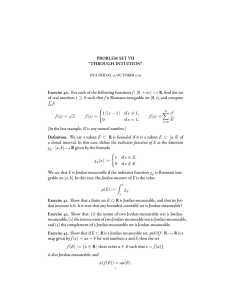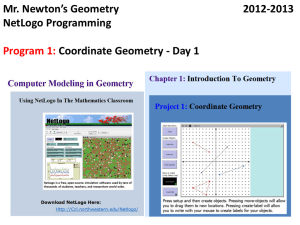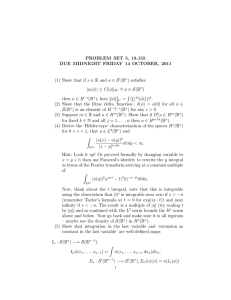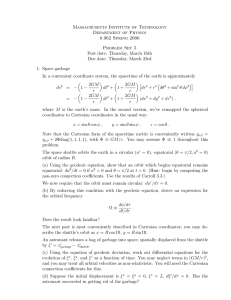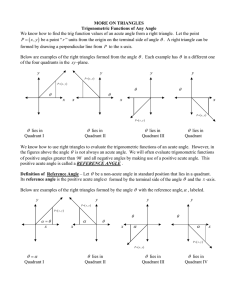Math 410 Examination 2 October 31, 2000 R
advertisement
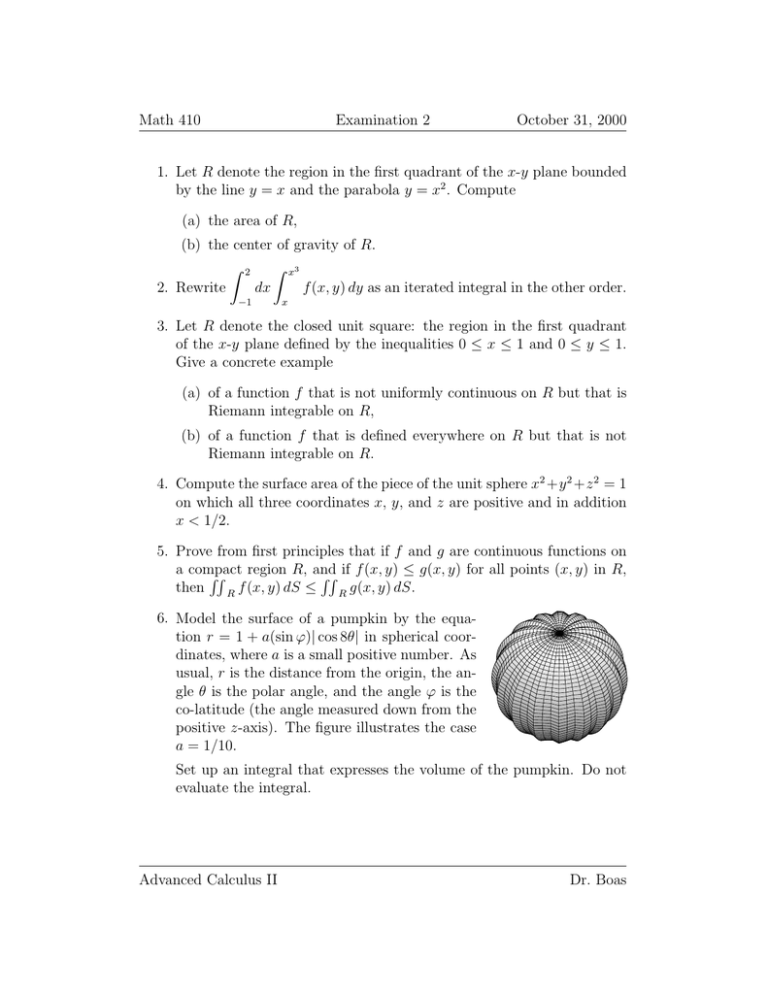
Math 410 Examination 2 October 31, 2000 1. Let R denote the region in the first quadrant of the x-y plane bounded by the line y = x and the parabola y = x2 . Compute (a) the area of R, (b) the center of gravity of R. Z x3 Z 2 dx f (x, y) dy as an iterated integral in the other order. 2. Rewrite −1 x 3. Let R denote the closed unit square: the region in the first quadrant of the x-y plane defined by the inequalities 0 ≤ x ≤ 1 and 0 ≤ y ≤ 1. Give a concrete example (a) of a function f that is not uniformly continuous on R but that is Riemann integrable on R, (b) of a function f that is defined everywhere on R but that is not Riemann integrable on R. 4. Compute the surface area of the piece of the unit sphere x2 +y 2 +z 2 = 1 on which all three coordinates x, y, and z are positive and in addition x < 1/2. 5. Prove from first principles that if f and g are continuous functions on a compact region R, and RR if f (x, y) ≤ g(x, y) for all points (x, y) in R, RR then R f (x, y) dS ≤ R g(x, y) dS. 6. Model the surface of a pumpkin by the equation r = 1 + a(sin ϕ)| cos 8θ| in spherical coordinates, where a is a small positive number. As usual, r is the distance from the origin, the angle θ is the polar angle, and the angle ϕ is the co-latitude (the angle measured down from the positive z-axis). The figure illustrates the case a = 1/10. Set up an integral that expresses the volume of the pumpkin. Do not evaluate the integral. Advanced Calculus II Dr. Boas
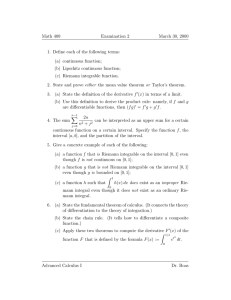
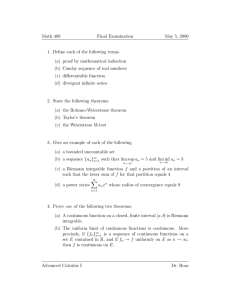
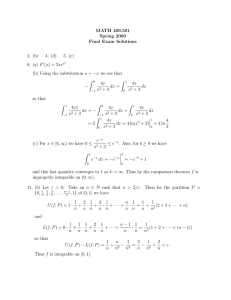
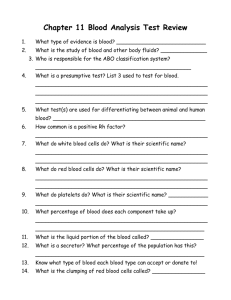
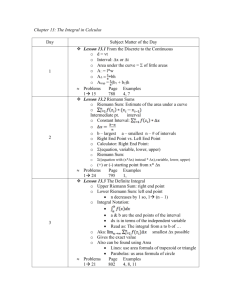
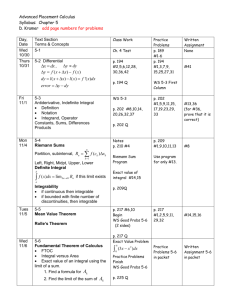
![MA2224 (Lebesgue integral) Tutorial sheet 9 [April 1, 2016] Name: Solutions](http://s2.studylib.net/store/data/010730676_1-da95259dff03cdc09e93691367468546-300x300.png)
